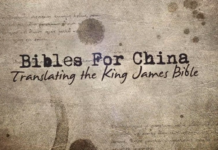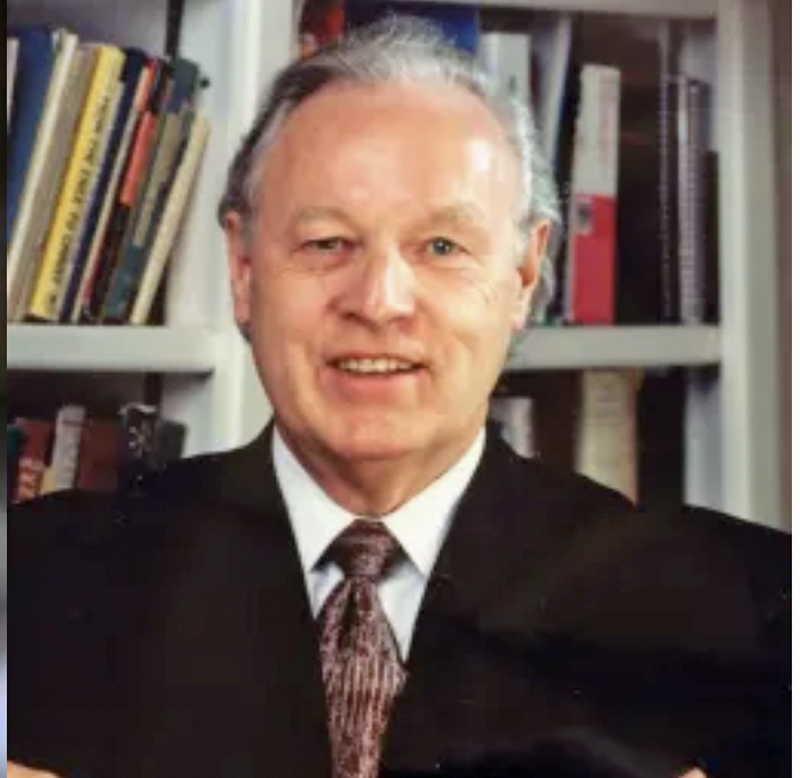A summary of twelve, one-volume systematic theology books.
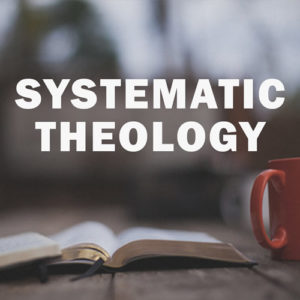 ALBUQUERQUE, NEW MEXICO—A children’s ministry director named Roxie walked up to me recently and asked a simple question: “What book would you recommend for systematic theology?” The reason for her question is that her daughter, Madison, is finishing up Bible college and wants to expand her reading beyond the required textbooks.
ALBUQUERQUE, NEW MEXICO—A children’s ministry director named Roxie walked up to me recently and asked a simple question: “What book would you recommend for systematic theology?” The reason for her question is that her daughter, Madison, is finishing up Bible college and wants to expand her reading beyond the required textbooks.
Roxie’s question is a good one, but the answer is not always simple. Why? First, most systematic theology books have a theological angle; though most authors address other schools of thought within their work, they do so while emphasizing a particular position. So, one must get a handle on the angle of the author before understanding the broad theological emphasis stressed in the work, such as Reformed, Catholic, Anglican, Dispensational, Orthodox, etc. Second, systematic theology is a broad subject covering many aspects of God such as His existence, nature, attributes, subsistence, and operation. Because of this, many systematic theology books are more than one volume, sometimes up to a dozen. Choosing one that encompasses all facets of systematic theology in one volume can be difficult. Third, some of the older systematic theology books use antiquated jargon, so may be a challenge to read and comprehend; yet they still provide outstanding information. Finally, when approaching systematic theology, one must realize that you may not agree with everything the author writes; an open mind and open Bible is paramount.
With these thoughts kept in mind, here are twelve, one-volume books that are fine systematic theology works. In some cases, they summarize larger volumes. I’ve listed them alphabetically by author. I’ve tried to include more advanced works and books that are approachable to the person entering the beautiful world of theology.
- Aquinas, Thomas (1225-1274). Summa Theologiae, Peter Kreeft, editor, Summa of the Summa. Though not a systematic theology book, per-se, Aquinas’ Summa Theologiae offers one of the most penetrating and insightful looks at the existence and nature of God. It’s a classic if there ever was one, considered one of the greatest books on theology and philosophy in the western world. And being that Aquinas was heavily reliant on works that went before him (Dionysius, Augustine, Peter Lombard, etc.), you’ll get a culmination of Medieval thought within Aquinas. Peter Kreeft’s version breaks Aquinas down to essential thoughts and provides helpful notes to assist the reader in navigating Aquinas’ monumental work. Be warned: put on a thinking cap when approaching Aquinas.
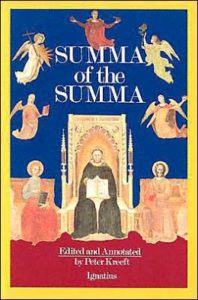
- Bray, Gerald (b. 1948). God is Love: A Biblical and Systematic Theology. As a research professor at Knox Theological Seminary, Bray’s book is both comprehensive and carefully written. And though the book is akin to a treatise on how love informs all theology, he covers pertinent systematic topics within in his wonderful book. As the title implies, Bray bases the book on the Biblical teaching that “God is love” (I John 4:15).
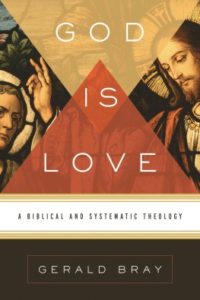
- Culver, Robert Duncan (1916-2015). Systematic Theology: Biblical and Historical. Originally recommended to me by one of my former professors, John Warwick Montgomery, Culver’s Lutheran approach to systematic theology is both profound and practical, taking a very Christ-centric view. Warren Wiersbe writes concerning Culver, “As a theologian, he is biblical and balanced, and he keeps reminding us that theology is for living and not just for studying.”
- Geisler, Norman (b. 1932). Systematic Theology. Originally written as a four-volume set, the one-volume compendium offers a rigorous overview of the major themes in theology, from God’s existence to eschatology (last things). And though Geisler is a Thomist (one who prescribes to Thomas Aquinas’ broad approach), his theology also includes dispensational elements, particularly as they relate to the end times. As one of my former professors, I frequently recommend this book.
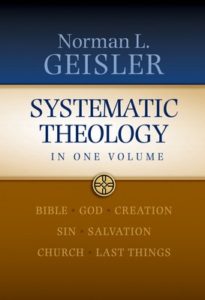
- Grudem, Wayne (b. 1948). Systematic Theology. A favorite of many students of theology, Grudem’s work is readable and reliable in the information it conveys. Grudem is a research professor of theology at Phoenix Seminary.
- Hall, Francis (1857-1932). Theological Outlines. Written from a distinctly Anglo-Catholic perspective, Theological Outlines is a summary of Hall’s masterful ten-volume Dogmatic Theology Hall takes a historically rooted approach, following the major tenant of the Christian faith while covering the vast majority of theology proper topics. Hall’s even smaller work, The Doctrine of God, uses a question and answer approach in delivering essential theological information in an easy-to-read format.
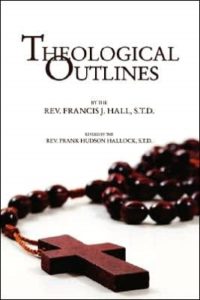
- Horton, Michael (b. 1964). The Christian Faith. As a Reformed theologian, Horton has written a theological work that is diverse and appropriating to various streams of thought. The charts, sidebar section, and current issue elements make this a wonderful work.
- McGrath, Alister (b. 1953). Christian Theology. As a standard textbook for many Bible colleges and seminaries, McGrath’s book is user friendly and comprehensive, providing a sufficient summary of the broader theological points and personages found in theology. As an Anglican, McGrath’s approach is both universal and inclusive to various theological traditions.
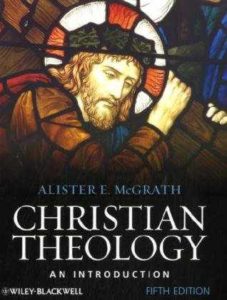
- Packer, J.I. (b. 1926). Concise Theology. Unlike others, Packer is able to cover much ground in a succinct work. Hitting on most of the major doctrines, this book is great for folks new to theology. And his classic book, Knowing God, can also been read as a premier on the attributes of God.
- Thiessen, Henry (1884-1947). Lectures in Systematic Theology. As my first systematic theology textbook in school, I became quite familiar with this classic work. Thiessen provides a clear-cut path through systematic theology, giving a fair treatment of the main tenant of theology, from theism to anthropology, soteriology to ecclesiology, and angelology to eschatology. In short, it’s all here, packed nicely into one volume.
- Thiselton, Anthony (b. 1937). Systematic Theology. As one of my favorite recent works, Thiseleton is able to present a host of ideas, concepts, and approaches in this readable one-volume book. And he does so by keeping one eye on practical application with pastoral sensibility. I was particularly impressed with the scope of people and ideas—from current philosophers and theologians, to past greats such as Augustine and Aquinas—that were included in the work. All the voices he integrates into this well researched volume are written in a pleasing and engaging style.
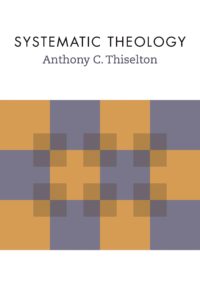
- Zahl, Paul F. M. A Short Systematic Theology. It’s appropriate to end with Zahl. As the shortest work, Zahl does the novice to theology a big favor: he concentrates theology into three chapters. If that’s not amazing in itself, Zahl does so with clarity and conviction. With its very Christ-centered approach, A Short Systematic Theology is an excellent introduction to both Jesus and theology.
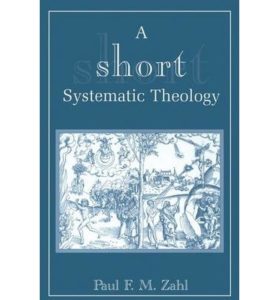 Of course, there are many others—from Millard Erickson and Thomas Oden to John Frame and Louis Berkhof, but I could only list so many. Or one could delve into Orthodox theology via Orthodox Dogmatic Theology by Michael Pomazansky or The Beauty of the Infinite: The Aesthetics of Christian Truth by David Bentley Hart—to really expand one’s theological palate. For the serious student, there’s a host of websites that offer an assortment of options. And if one were to move into multi-volume works, the list grows more: Charles Hodge (Reformed), James McClendon (Anabaptist), Hans Urs Von Balthazar (Roman Catholic), Karl Barth (neo-Orthodox), Wolfhart Pannenberg (neo-Evangelical), Carl Henry (Evangelical), Paul Tillich (Existential), etc. But more than just read about the books in an article like this, pick one up and read the book itself; in doing so, you’ll lean more about our marvelous Lord, Maker of heaven and earth.
Of course, there are many others—from Millard Erickson and Thomas Oden to John Frame and Louis Berkhof, but I could only list so many. Or one could delve into Orthodox theology via Orthodox Dogmatic Theology by Michael Pomazansky or The Beauty of the Infinite: The Aesthetics of Christian Truth by David Bentley Hart—to really expand one’s theological palate. For the serious student, there’s a host of websites that offer an assortment of options. And if one were to move into multi-volume works, the list grows more: Charles Hodge (Reformed), James McClendon (Anabaptist), Hans Urs Von Balthazar (Roman Catholic), Karl Barth (neo-Orthodox), Wolfhart Pannenberg (neo-Evangelical), Carl Henry (Evangelical), Paul Tillich (Existential), etc. But more than just read about the books in an article like this, pick one up and read the book itself; in doing so, you’ll lean more about our marvelous Lord, Maker of heaven and earth.

